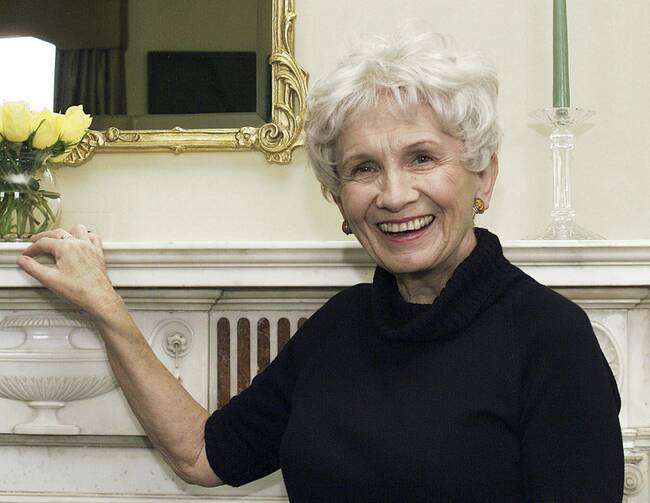Editor’s note: This review by Andre Dubus III of Alice Munro’s short story collection Open Secrets was originally published in the July 1, 1995, issue of America. Ms. Munro, a Nobel Laureate and acclaimed author, died on May 13, 2024, at the age of 92.
Nobel Laureate Nadine Gordimer has written of the short story form: “Whether it sprawls or neatly bites its own tail…to write one is to express from a situation in the exterior or interior world the life-giving drop—sweat, tear, semen, saliva—that will spread with intensity on the page; burn a hole in it.”
While there is an abundance of accomplished short stories among us, few measure up to this description. This is where artistic mastery of the form comes into play, the ability to compose stories that hold enough life-giving substance to burn through the page and leave us permanently marked. Alice Munro, author of the critically acclaimed story collections, Friends of My Youth and The Progress of Love, as well as the novel Lives of the Girls and Women, is one such master, and nowhere is this more evident than in her seventh collection of short fiction, Open Secrets.
In these eight stories, all of which occur in and around the small provincial town of Carstairs, Ontario, Canada, women and girls are the predominant figures, and with them comes a strong undercurrent of mortality, of the passage of time and the not necessarily enduring pull of love. In “Carried Away,” Louisa, an elderly widow, has an imagined conversation with a man she loved who was killed in his youth, yet in their talk he is old and has lived a long life as a factory union spokesman in Toronto. He tells her love never dies: “She felt impatient to the point of taking offense. This is what all the speechmaking turns you into, she thought, a person who can say things like that. Love dies all the time, or at any rate it becomes distracted, overlaid—it might as well be dead.” This is not the message of these stories, but rather one of the central questions that serve as theme; throughout them, we witness love in its various forms become distracted and overlaid by sometimes nothing more than the inevitable and indifferent passage of time, and, at other times, by the deep ambiguity Munro’s women seem to feel about men in the first place.
In the title story, “Open Secrets,” a teenage girl out on a hike with the Canadian Girls in Training disappears. The story is told from Maureen Stephen’s point-of-view, a young woman married to a much older man, a reputable lawyer in town who is recovering from a stroke. Maureen is haunted by the girl’s disappearance. In one scene, she looks out her window at the dense wall of trees along the river: “She could imagine vanishing. But of course you didn’t vanish, and there was always the other person on a path to intersect yours and his head was full of plans for you even before you met.”
She is, of course, referring to the town’s suspicion that the missing girl met her doom at the hands of a man in the woods, but here, as in all these stories, the obvious resonates with far deeper metaphorical implication; we cannot separate this woman’s musings on foul play from our perception that she is living a life she was steered toward and does not necessarily accept as truly hers. But this is no one-layer metaphor, and Munro never forces any of her characters to make a larger point; she seems to respect them and the inherent complexity of their story far too much for that. This is particularly evident in the final moments of “Open Secrets”:
Maureen is a young woman yet, though she doesn’t think so, and she has life ahead of her. First a death—that will come soon—then another marriage, new places and houses. In kitchens hundreds and thousands of miles away, she’ll watch the soft skin form on the back of a wooden spoon and her memory will twitch, but it will not quite reveal to her this moment when she seems to be looking into an open secret, something not startling until you think of trying to tell it.
But mere understatement is not the source of these stories’ power. It is something else. It is Munro’s gift for coming at them from the subtlest of directions, from the periphery, like a bat darting over a picnic crowd, from above and behind, like the wind and the past. Indeed, change and the passage of time play a large role here. In some of these stories, we see entire lives lived out, many to old age. In “A Wilderness Station,” a tale that covers over one hundred years and which is largely told in the quite convincing voices of its male characters, Munro notes: “This world is a wilderness, in which we may indeed get our station changed, but the move will be out of one wilderness station unto another.”
This is the thematic heart of Open Secrets, that the only constant is change and within that lies mystery upon mystery. These are brilliant and unforgettable stories, ones that manage not only to “sprawl” but to also “neatly bite their own tail.” Alice Munro is a true master of the short form.








